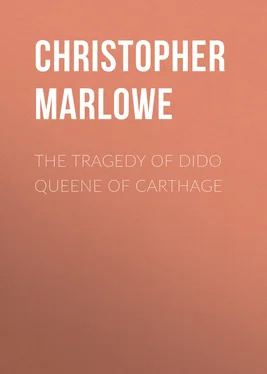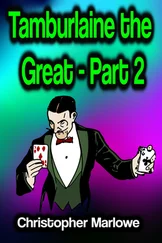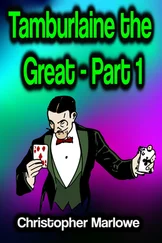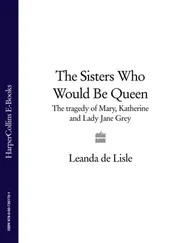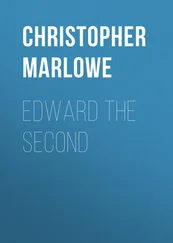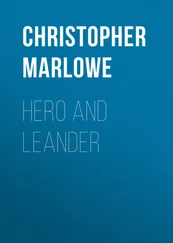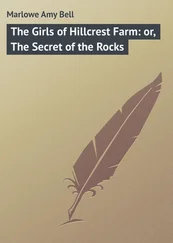Christopher Marlowe - The Tragedy of Dido Queene of Carthage
Здесь есть возможность читать онлайн «Christopher Marlowe - The Tragedy of Dido Queene of Carthage» — ознакомительный отрывок электронной книги совершенно бесплатно, а после прочтения отрывка купить полную версию. В некоторых случаях можно слушать аудио, скачать через торрент в формате fb2 и присутствует краткое содержание. Жанр: foreign_dramaturgy, Драматургия, foreign_antique, foreign_prose, на английском языке. Описание произведения, (предисловие) а так же отзывы посетителей доступны на портале библиотеки ЛибКат.
- Название:The Tragedy of Dido Queene of Carthage
- Автор:
- Жанр:
- Год:неизвестен
- ISBN:нет данных
- Рейтинг книги:4 / 5. Голосов: 1
-
Избранное:Добавить в избранное
- Отзывы:
-
Ваша оценка:
- 80
- 1
- 2
- 3
- 4
- 5
The Tragedy of Dido Queene of Carthage: краткое содержание, описание и аннотация
Предлагаем к чтению аннотацию, описание, краткое содержание или предисловие (зависит от того, что написал сам автор книги «The Tragedy of Dido Queene of Carthage»). Если вы не нашли необходимую информацию о книге — напишите в комментариях, мы постараемся отыскать её.
The Tragedy of Dido Queene of Carthage — читать онлайн ознакомительный отрывок
Ниже представлен текст книги, разбитый по страницам. Система сохранения места последней прочитанной страницы, позволяет с удобством читать онлайн бесплатно книгу «The Tragedy of Dido Queene of Carthage», без необходимости каждый раз заново искать на чём Вы остановились. Поставьте закладку, и сможете в любой момент перейти на страницу, на которой закончили чтение.
Интервал:
Закладка:
Christopher Marlowe
The Tragedy of Dido Queene of Carthage
This play is facsimiled from the Bodley copy. Other examples (says Sir Sidney Lee, but unrecorded by Greg) are at Bridgewater House and at Chatsworth; the Devonshire Collection of Plays has recently been disposed of to an American collector .
For other and bibliographical details see D.N.B. I have included in this facsimile the page of manuscript in the Bodley example inasmuch as it contains matter of interest to the student.
The reproduction from the original was made by The Clarendon Press, Oxford .
JOHN S. FARMER.[Transcriber's Note: The following paragraphs have been transcribed from a handwritten page. Some text is illegible, and this has been marked with asterisks where appropriate.]
The tragedy of Dido is one of the scarcest plays in the English language. There are but two copies known to be extant; in the possession of D^r Wright and M^r Reed.
M^r Warton speaks in his Hist. of Eng. Poet (III. p. 435) of an Elegy being prefixed to it on the death of Marlowe; but no such is found in either of those copies. In answer to my inquiries on this subject he informed me by letter, [crossed-out text] that a copy of this play was in Osborne's catalogue in the year 1754, that he then saw it in his shop (together with several of M^r Oldys's books that Osborne had purchased), + that the elegy in question—"on Marlowe's untimely death" was inserted immediately after the title page; that it mentioned a play of Marlowe's entitled The Duke of Guise and four others; but whether particularly by name , he could not recollect. Unluckily he did not purchase this rare piece, + it is now God knows where.
Bishop Tanner likewise mentions this elegy in so particular a manner that he must have seen it. "Marlovius (Christopherus), quondam in academia Cantabrigiensi musarum alumnus; postea actor scenicus; deinde poeta dramaticus tragicus, paucis inferior Scripsit plurimas tragedias, sc. Tamerlane.-Tragedie of Dido Queen of Carthage. Pr. Come gentle Ganymed. Hanc perfecit + edidit Tho. Nash Lond. 1594. 4^to.—Petrarius in præfatione ad Secundam partem Herois et Leandri multa in Marlovii commendationem adfert; hoc etiam facit Tho. Nash in Carmine Elegiaco Tragidiæ Didonis præfiso in obitum Christop. Marlovii , ubi quatuor ejus tragidiarum mentionem facit, nec non et alterius de duce Guisio ." Bib. Britan. 1740.
I suspect M^r Warton had no other authority than this for saying that this play was left imperfect by Marlowe, and completed + published by Nashe; for it does not appear from the title page that it was not written in conjunction by him + Marlowe in the lifetime of the former. Perhaps Nashe's Elegy might ascertain this point. Tanner had, I believe, no authority but Philipses, for calling Marlowe an actor.
There was an old Latin play on the subject of Dido, written by
John Rightwise and played before Cardinal Wolsey + again before
Queen Elizabeth in 1564. There is also another Latin play on this
subject Dido , tragedia nova so quatuor pri*ibus ***
**************** Virgilii disampla Antwerp ed, 1559.
THE Tragedie of Dido Queene of Carthage:
Played by the Children of her Maiesties Chappell.
Written by Christopher Marlowe, and Thomas Nash. Gent.
Actors
Iupiter. Ascanius. Ganimed. Dido. Venus. Anna. Cupid. Achates. Iuno. Ilioneus. Mercurie. Iarbas. Hermes. Cloanthes. Æneas. Sergestus.
The Tragedie of Dido Queene of Carthage
Here the Curtaines draw, there is discovered Iupiter dandling Ganimed upon his knee, and Mercury lying asleepe .
Iup. Come gentle Ganimed and play with me, I loue thee well, say Iuno what she will.
Gan. I am much better for your worthles loue,
That will not shield me from her shrewith blowes:
To day when as I fild into your cups,
And held the cloath of pleasance whiles you dranke,
She reacht me such a rap for that I spilde,
As made the bloud run downe about mine eares.
Iup. What? dares she strike the darling of my thoughts?
By Saturnes soule, and this earth threatning aire,
That shaken thrise, makes Natures buildings quake,
I vow, if she but once frowne on thee more,
To hang her meteor like twixt heauen and earth,
And bind her hand and foote with golden cordes,
As once I did for harming Hercules .
Gan. Might I but see that pretie sport a foote,
O how would I with Helens brother laugh,
And bring the Gods to wonder at the game:
Sweet Iupiter , if ere I pleasde thine eye,
Or seemed faire walde in with Egles wings,
Grace my immortall beautie with this boone,
And I will spend my time in thy bright armes.
Iup. What ist sweet wagge I should deny thy youth?
Whose face reflects such pleasure to mine eyes,
As I exhal'd with thy fire darting beames,
Haue oft driuen backe the horses of the night.
When as they would haue hal'd thee from my sight:
Sit on my knee, and call for thy content,
Controule proud Fate, and cut the thred of time,
Why are not all the Gods at thy commaund,
And heauen and earth the bounds of thy delight?
Vulcan shall daunce to make thee laughing sport,
And my nine Daughters sing when thou art sad,
From Iunos bird Ile pluck her spotted pride,
To make thee fannes wherewith to coole thy face,
And Venus Swannes shall shed their siluer downe,
To sweeten out the slumbers of thy bed:
Hermes no more shall shew the world his wings,
If that thy fancie in his feathers dwell,
But as this one Ile teare them all from him,
Doe thou but say their colour pleaseth me:
Hold here my little loue these linked gems,
My Iuno ware vpon her marriage day,
Put thou about thy necke my owne sweet heart,
And tricke thy armes and shoulders with my theft.
Gan. I would haue a iewell for mine eare, And a fine brouch to put in my hat, And then Ile hugge with you an hundred times.
Iup. And shall haue Ganimed , if thou wilt be my loue.
Enter Venus.
Venus. I this is it, you can sit toying there,
And playing with that female wanton boy,
Whiles my Æneas wanders on the Seas,
And rests a pray to euery billowes pride.
Iuno , false Iuno in her Chariots pompe,
Drawne through the heauens by Steedes of Boreas brood,
Made Hebe to direct her ayrie wheeles
Into the windie countrie of the clowdes,
Where finding Æolus intrencht with stormes,
And guarded with a thousand grislie ghosts,
She humbly did beseech him for our bane,
And charg'd him drowne my sonne with all his traine.
Then gan the windes breake ope their brazen doores,
And all Æolia to be vp in armes:
Poore Troy must now be sackt vpon the Sea,
And Neptunes waues be enuious men of warre,
Epeus horse to Ætnas hill transformd,
Prepared stands to wracke their woodden walles,
And Æolus like Agamemnon sounds
The surges, his fierce souldiers to the spoyle:
See how the night Ulysses -like comes forth,
And intercepts the day as Dolon erst:
Ay me! the Starres supprisde like Rhesus Steedes,
Are drawne by darknes forth Astræus tents.
What shall I doe to saue thee my sweet boy?
When as the waues doe threat our Chrystall world,
And Proteus raising hils of flouds on high,
Entends ere long to sport him in the skie.
False Iupiter , rewardst thou vertue so?
What? is not pietie exempt from woe?
Then dye Æneas in thine innocence,
Since that religion hath no recompence.
Интервал:
Закладка:
Похожие книги на «The Tragedy of Dido Queene of Carthage»
Представляем Вашему вниманию похожие книги на «The Tragedy of Dido Queene of Carthage» списком для выбора. Мы отобрали схожую по названию и смыслу литературу в надежде предоставить читателям больше вариантов отыскать новые, интересные, ещё непрочитанные произведения.
Обсуждение, отзывы о книге «The Tragedy of Dido Queene of Carthage» и просто собственные мнения читателей. Оставьте ваши комментарии, напишите, что Вы думаете о произведении, его смысле или главных героях. Укажите что конкретно понравилось, а что нет, и почему Вы так считаете.
